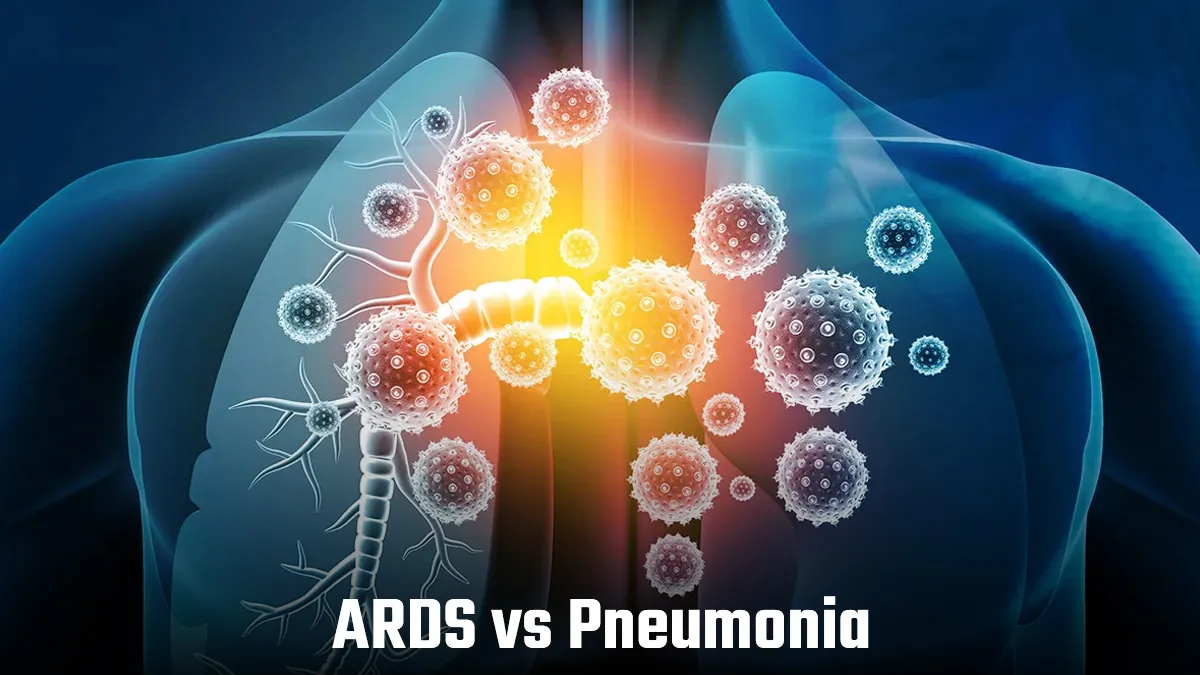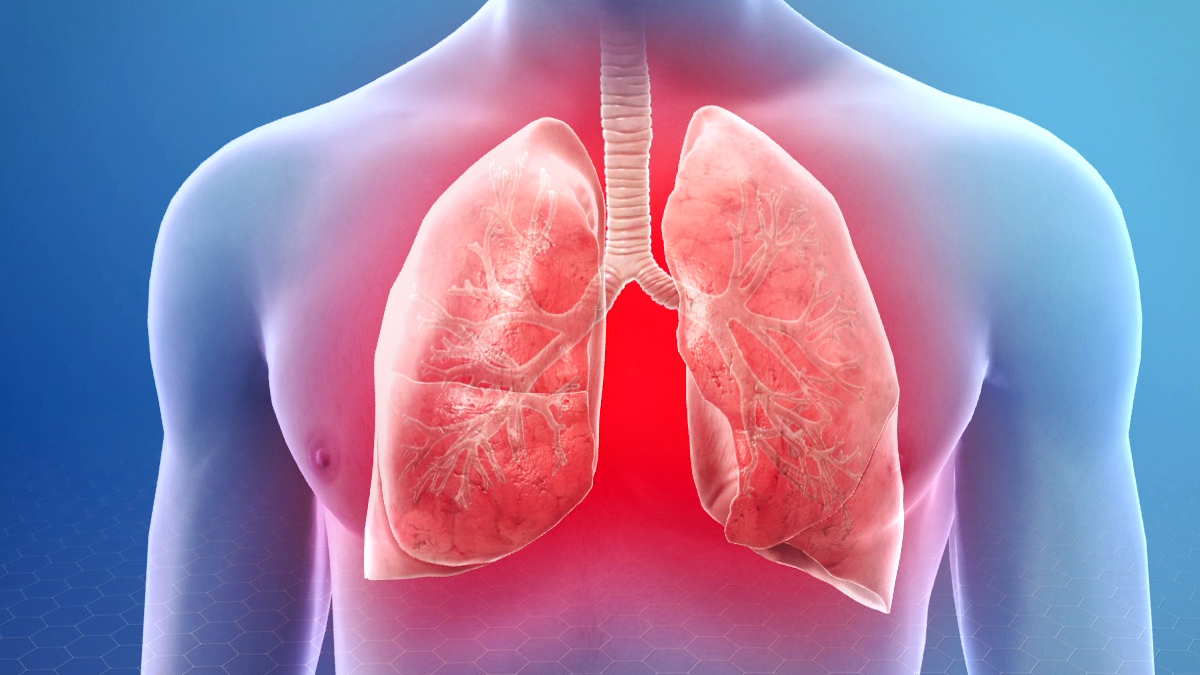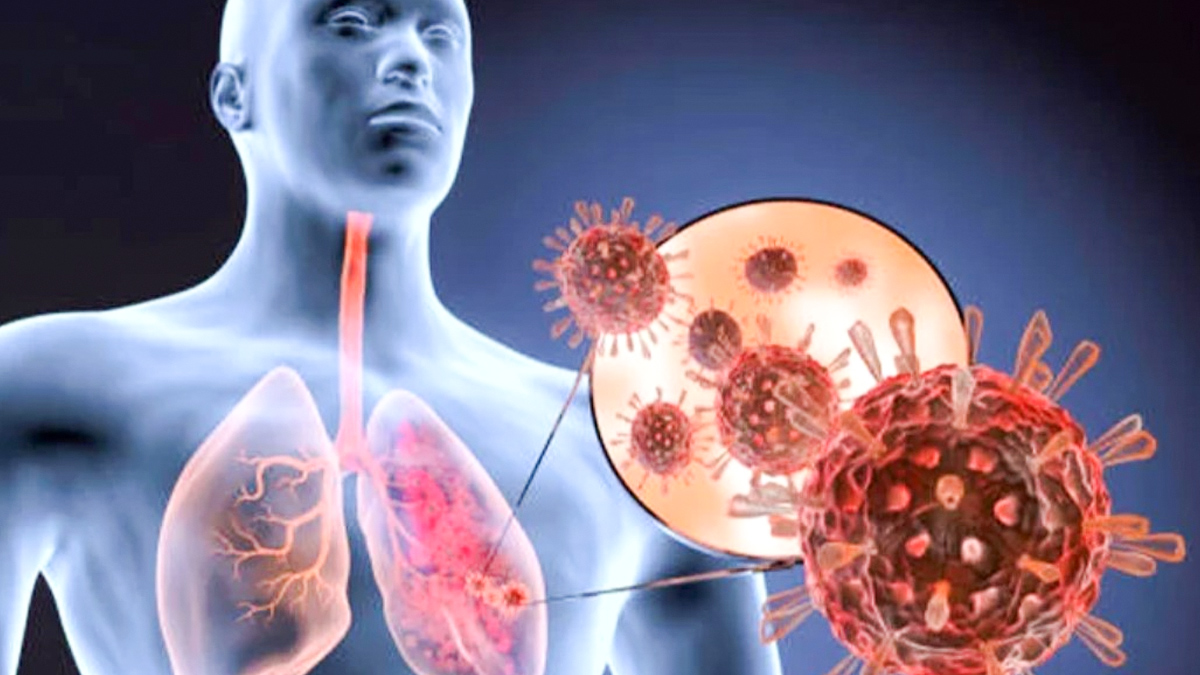
Breathing troubles can feel frightening, especially when the cause is serious. Among the many lung conditions, two names that often come up are pneumonia and Acute Respiratory Distress Syndrome (ARDS). Pneumonia is fairly well-known, but ARDS is less familiar, even though it can be life-threatening. According to health experts, pneumonia sometimes progresses into ARDS, turning an already difficult illness into a medical emergency.
Table of Content:-
To help readers understand the difference, we spoke to Dr Sachin Shah, Director of Neonatal and Pediatric Intensive Care Services at Surya Hospital, Pune, who explained what separates these two conditions and what everyone should know.
Understanding ARDS and Pneumonia![ards 2 - 2025-09-24T171859.774]()
Dr Shah explains that ARDS is not a disease by itself, but rather a severe complication. “Acute Respiratory Distress Syndrome (ARDS) may not be a household term, but when it strikes, the consequences are often devastating. It can follow severe infections like pneumonia, causing rapid inflammation and fluid build-up in the lungs, making breathing nearly impossible,” he says.
On the other hand, pneumonia is an infection of the lungs. It can be caused by bacteria, viruses, or fungi, and leads to symptoms such as fever, cough, and chest discomfort. With treatment usually antibiotics, antivirals, or supportive care most patients recover well.
A World Health Organisation study highlights pneumonia as the leading infectious killer of children under five worldwide. In some rare but serious cases, pneumonia escalates into ARDS. Globally, ARDS accounts for nearly 2% of admissions in Pediatric Intensive Care Units, with mortality rates as high as 60%.
ALSO READ: What Is Walking Pneumonia, The Condition Behind China’s Mysterious Outbreak Among Children?
Key Differences Between the Two![Differences between ards pneumonia 1 - 2025-09-24T171854.786]()
While both pneumonia and ARDS affect the lungs, their nature and outcomes differ. Dr Shah breaks it down:
- “Pneumonia is an infection. It starts when germs enter the lungs, causing cough, fever, chest pain, and fatigue. With proper treatment, the infection can clear,” he says.
- “ARDS is not an infection but a complication. It usually develops after pneumonia or other serious illnesses. The lungs become severely inflamed and filled with fluid, leading to widespread breathing failure.”
The main difference lies in severity. Pneumonia can usually be managed if detected early. ARDS, however, is a critical emergency that requires intensive hospital care, often involving ventilators and advanced monitoring.
What to Watch Out For
For most people, understanding the warning signs can make a life-saving difference. Dr Shah explains, “Pneumonia often shows up with fever, cough with sputum, body ache, and tiredness. If treated on time, recovery is possible in days to weeks.”
However, ARDS is a different story. It develops suddenly, often after pneumonia, trauma, or severe infections. Symptoms include extreme shortness of breath, very low oxygen levels, and rapid breathing. “If someone who has pneumonia suddenly struggles to breathe or becomes unusually weak, it is time to rush to the hospital,” warns Dr Shah.
Practical Advice for Families![advice for families pneumonia 3 - 2025-09-24T171857.310]()
What should ordinary people do if they suspect these conditions? The advice is straightforward:
- Don’t ignore persistent fever or cough.
- If symptoms worsen, especially breathlessness, seek medical help quickly.
- Early diagnosis of pneumonia can stop it from progressing into ARDS.
- In ARDS, immediate hospital care is essential to improve survival chances.
Dr Shah emphasises: “Early intervention saves lives. Treating pneumonia promptly can prevent ARDS, and timely hospital care in ARDS can make all the difference.”
Conclusion
While pneumonia and ARDS are closely linked, they are not the same. Pneumonia is an infection that can usually be managed with proper care. ARDS, on the other hand, is a dangerous complication that demands urgent hospital treatment. Knowing the symptoms and acting quickly could mean the difference between recovery and crisis. Awareness is the first step to protecting yourself and your loved ones.
Also watch this video
Read Next
A New Pulse: How Renal Denervation is Offering Hope to Those Living with Resistant Hypertension
How we keep this article up to date:
We work with experts and keep a close eye on the latest in health and wellness. Whenever there is a new research or helpful information, we update our articles with accurate and useful advice.
Current Version
Sep 25, 2025 08:25 IST
Published By : Vivek Kumar



